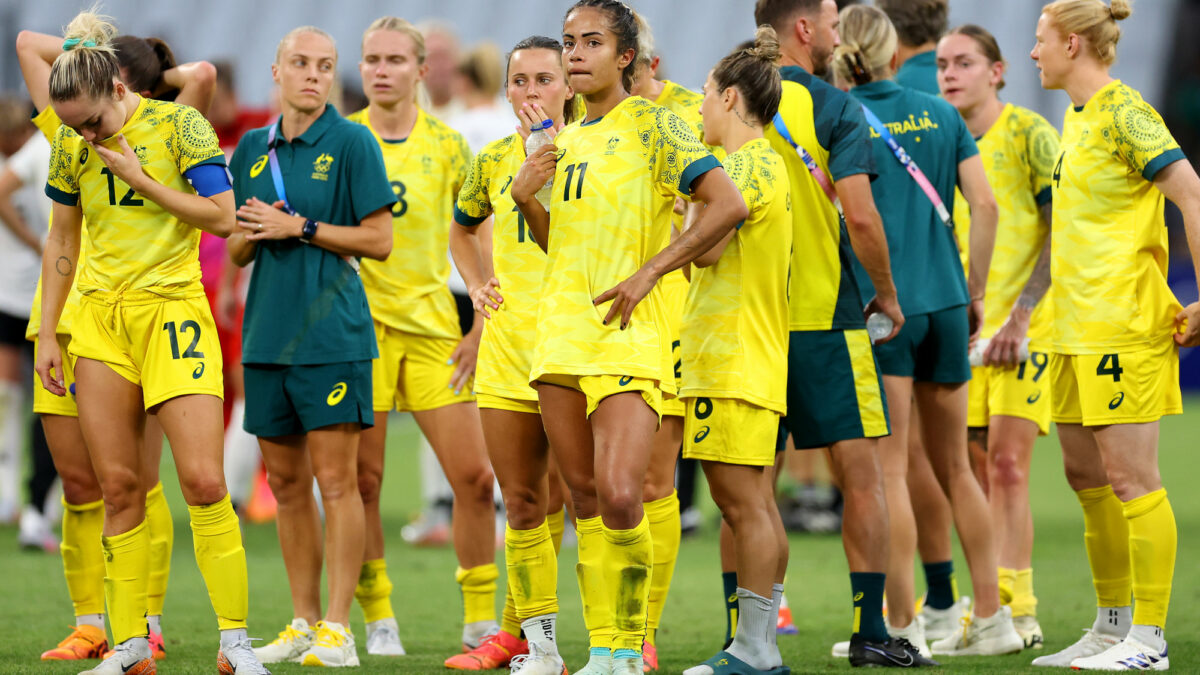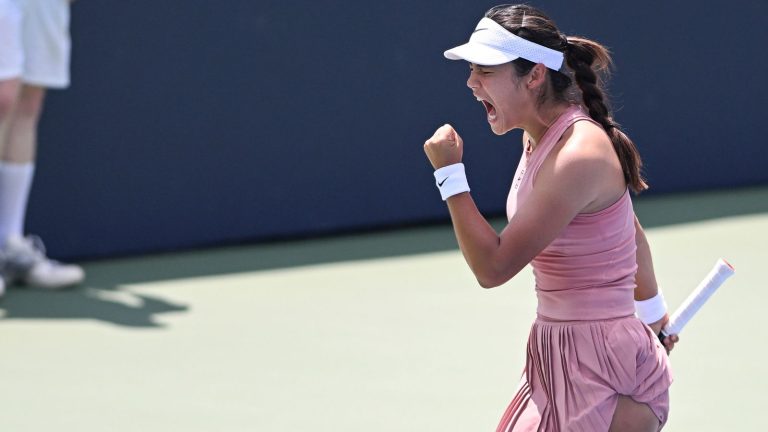When you lose a game of football by four goals to nil, there is little to be said in the dressing room afterwards to sugar-coat the result.
Such was the case for the Matildas in their opening match of the SheBelieves Cup in Houston early on Friday morning. If you missed the match, don’t bother, unless you would like to enjoy the sparkling team-based football played by Japan in their 4-0 smashing of the Aussies.
It was yet another poor result in a long line of performances that have the Matildas teetering on the brink of being exposed as a national favourite based on little more than public perception and hope, as opposed to a team that has actually earned the support and status that many Australians appear to have granted them.
The tournament now presents the opportunity for the team to recover against the host nation in Arizona on Monday, and then against Colombia three days later in San Diego. However, based on what we saw against Japan, the chances of the squad doing so appear to be slim and none.
Like many, I have long held in my belief that the lack of regeneration in the Matildas squad and the continued investment and subsequent improvements being made in many nations around the world when it comes to women’s football, has the Australians regressing and doing so relatively quickly.
Since the 2022 quarter-final loss at the Asian Cup to South Korea, the Matildas have been whacked by Spain, Canada, Brazil and now Japan. There have been wins in between against plenty of nations the Matildas were long odds-on to beat, yet the World Cup defeats in 2023 to England and then Sweden were also warning shots across the bows of a team that does look a fair distance off the best in the business.
Germany and Mexico are the best two scalps claimed by the Australians over the last 12 months and after a long period under former coach Tony Gustavsson in the lead-up to the World Cup that had plenty worried, only an opening up of the draw and a little bit of luck made it respectable for the home side.

Caitlin Foord. (Photo by Brad Smith/ISI Photos/USSF/Getty Images for USSF)
Since, the slide predicted by many a writer including me, has begun and the performance against Japan was as concerning an effort as could be.
It was another case of team choreography and an overall structure being something far too communal for the Matildas to overcome. Always excellent on the counter due to the powerful, direct and emphatic efforts on the run, the Matildas need to explore and learn another way to play.
For so many years we have seen the Aussies beat up on plenty of teams off the back of direct play from Caitlin Foord, Hayley Raso, Ellie Carpenter and Sam Kerr. On their day, along with a few deputies, the results can be stunning and expose defences to their sheer speed and torpedo-shaped attacks.
Yet when an astute squad such as the English, Japanese or a defensively minded world-class team stand in the way of the Matildas, the distinct lack of creativity and cohesion that emanates in the midfield is completely and utterly exposed.
Mary Fowler and Kyra Cooney-Cross have immense potential, yet neither control the most important area of the pitch: preferring instead to push forward in search of a wonder-strike, rather than do a toiler’s job that would benefit the team far more.

The Matildas look dejected after their Olympic loss to Germany. (Photo by Alex Livesey/Getty Images)
The hype around enthusiastic greyhound Katrina Gorry continues to mystify me, with her sloppiness on the ball and the aforementioned two’s inability to dominate the midfield, parlaying the Matildas’ problems in the centre of the ground. This subsequently exposes them to the annihilation the Japanese gave them in midfield.
Current coach Tom Sermanni picked what he thought was his strongest squad on paper and it may well have been. However, Japan picked the Aussies apart with ease and the need for a new coach to step in and revolutionise the way the team is approaching international play at the top level is now urgent.
The United States and Colombia will be tough matches and the tournament looks like a failure at the early stage. However, the bigger question is just how long some people can live in the fantasy world that sees the Matildas as a dominant player in women’s football, as the rest of the world catches up to some of the trail-blazing countries.
It might be an awkward question, but one that needs to be addressed quickly.

![Ben Duckett takes a blinder as Shardul Thakur perishes to Ben Stokes for 41 on Day 2 of ENG vs IND 2025 4th Test [Watch]](https://joelgalvan.site/wp-content/uploads/2025/07/3fe98-17533581083329-1920-768x494.jpg)





